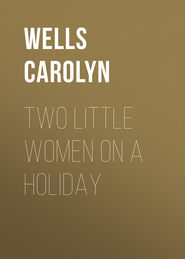По всем вопросам обращайтесь на: info@litportal.ru
(©) 2003-2025.
✖
Raspberry Jam
Настройки чтения
Размер шрифта
Высота строк
Поля
“Yes!” triumphantly; “and that’s what Sanford called me to-day when speaking to me through the medium. Isn’t that a proof? How could that man know that?”
“I can’t explain that,” declared Elliott, a little shortly, “but it’s all rubbish, and I don’t think you ought to be allowed to go to such places! It’s disgraceful—”
“You hush up, Mason,” Miss Ames cried; “I’ll go where I like! I’m not a child. And, too, I wasn’t alone—I had an escort—a very nice one.” She looked kindly at Fibsy.
“Thank you, ma’am,” he returned, bobbing his funny red head. “I sure enjoyed myself.”
“You didn’t look so; you looked half asleep.”
“I always enjoy myself when I’m asleep—and half a loaf is better’n no bed,” the boy grinned at her.
“Well, it may all be rubbish,” Alvord Hendricks said, musingly; “and it probably is—but there are people, Mason, who don’t think so. Anyway, here’s my idea. If Aunt Abby thinks she poisoned Sanford, under hypnotism—or any other way—for the love of heaven, let it go at that! If you don’t—suspicion will turn back to Eunice again—and that’s what we want to prevent. Now, no jury would ever convict an old lady—”
“Nor any woman,” said Elliott. “But that isn’t the whole thing. I say, Alvord, since Mr. Stone is on the job, suppose we give him full swing—and let him find the real murderer. It wasn’t Eunice!”
His words rang out so vibrantly that Stone gave him a quick glance. “You’re sure?” he asked, as it seemed, involuntarily.
“I am,” responded Elliott, with a satisfied nod of his handsome head.
“But your being sure doesn’t help much, Mason,” Eunice said, a despondent look coming into her eyes. “Are you sure, Mr. Stone?”
“I can’t quite answer that question yet, Mrs. Embury,” the courteous voice replied. “Remember, I’ve only just begun to look into the matter.”
“But you know all about it—from Mr. Shane and Mr. Driscoll.”
“I know what they think about it—but that’s a different story.”
“You don’t agree with their deductions, then?” asked Hendricks.
“I don’t agree with their premises—therefore—” Stone smiled cryptically, and left the sentence unfinished and ambiguous, which was his deliberate intention.
“We will have coffee in the living-room,” said Eunice, as she rose from the table. Always a charming hostess, she was at her best to-night. Her thin black gown was becoming and made her fair throat and arms seem even whiter by contrast.
She stood back, as the others left the room, and Hendricks, tarrying, too, came close to her.
“Brace up, dear,” he said; “it will all come out right. I’m sorry Elliott dragged in this Stone, but—it will be all right, somehow.”
“But it’s all so mysterious, Alvord. I don’t know what to do—or say—”
“Don’t lose your temper, Eunice. Let me advise you strongly as to that. It never does any good—it militates against you. And here’s another thing—Are you afraid of the little Desternay?”
“Afraid—how?” but Eunice paled.
“Afraid—she knows something—oh, something injurious to—”
“To me? She knows heaps!” The haughty head tossed, and Eunice looked defiant.
“You beauty!” and Hendricks took a step nearer. “Oh, you splendid thing! How I adore you. Eunice—you are a goddess to-night! And you are for me! Some day—oh, I’m not going to say it now–don’t look so alarmed—but, you know—oh, Sweet, you know! And you yes, you, too, my splendid Tiger—”‘
“Hush, Alvord! Never call me that!”
“No, I beg pardon. And I don’t want to. That was San’s own name for you. I shall call you my Queen! My glorious Queen-woman!”
“Oh, stop! Don’t you dare make love to me!
“And don’t you dare say ‘dare’ to me! I dare all—”
Ferdinand’s entrance cut short this dialogue, and Eunice and Hendricks went into the other room.
Almost immediately a visitor was announced, and Hanlon came in.
“Why, Mr. Hanlon,” Eunice said, greeting him cordially, “I’m glad to see you again.”
“So am I,” cried Aunt Abby, hastening to welcome the newcomer. “Oh, Mr. Hanlon, I went to see your man—Mr. Marigny, you know—”
“Yes? I called to see if you had found him all right.”
The necessary introductions were made, and Hanlon took his place in the group.
He was a little ill at ease, for he was by no means a member of “society,” and though he had been at the Embury house before, he seemed a trifle in awe of his surroundings.
“And I called, too,” Hanlon said, “to offer you my respectful sympathy, Mrs. Embury, and ask if there’s anything I can do for you.”
“Why, you’re very kind,” said Eunice, touched by his thoughtfulness, “but I’m afraid there’s nothing you—anybody can do for me.”
“F. Stone can,” declared Fibsy; “he can do a lot for you, Mrs. Embury.” The red head nodded vigorously, as was the boy’s habit, when much in earnest.
Hanlon regarded him closely, and Fibsy returned the scrutiny.
“Say,” the boy broke out, suddenly. “I’ve seen you before. You’re the man who found the hidden jackknife, in Newark!”
“The same,” and Hanlon smiled at him. “Were you present?”
“I sure was! Gee! You’re a wonder!”
“I was a wonder, but I don’t do wonderful things any more.”
“What do you do now?”
“Yes,” chimed in Eunice, “what are you doing, Mr. Hanlon? You told me you were going to take up a different line of work.”
“I did, Mrs. Embury; I’m a prosaic and uninteresting painter man nowadays.”
“An artist?”
“In a way,” and Hanlon smiled; “I paint signs—and I try to do them artistically.”
“Signs! How dull for you—after your exciting performances!”











